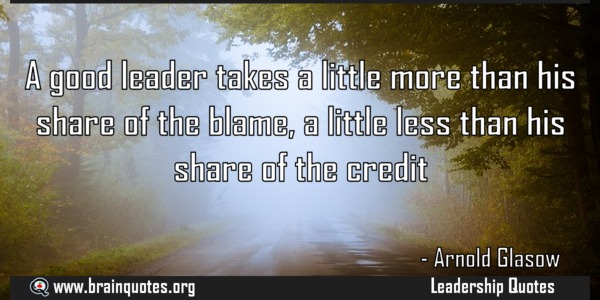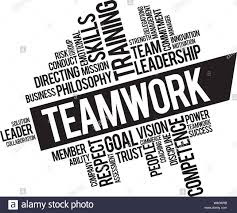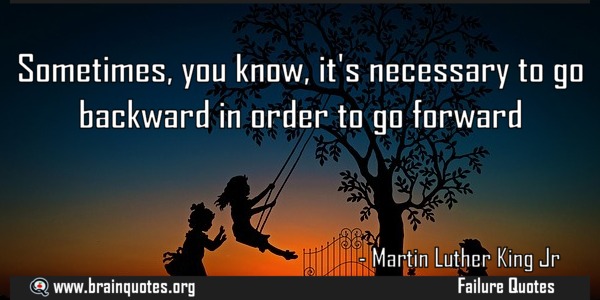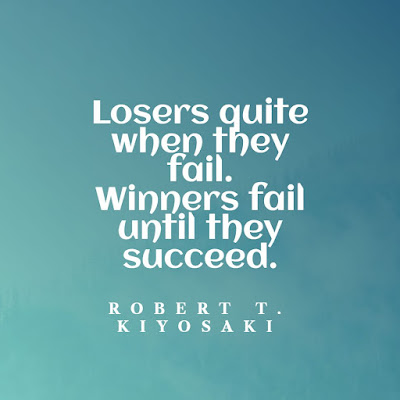Entrepreneurship (innovation)
Innovative
Companies
 |
| Innovation |
The organizations with a long-lasting
vision have been time-tested to make an impact on the world. These are the
organizations which not only survived the test of time but also endured to the
future. Visionary companies like Procter & Gamble, Sony, Hewlett-Packard,
Johnson & Johnson, Wal-Mart and Ford are not only lasting long in their
business but also impact and influence on the whole world. What is the primary
difference between these companies and their competitors that leads to growth
of one organization and mere sustainence of the other?
Collins and Porras (1996, p. 78) have
portrayed the Yin-Yang symbol to deliberate that a well-conceived vision is
embodied by two distinct but integral elements: core ideology and envisioned
future. While the former defines what the enterprise stands for and why it
exists, the latter defines what the enterprise aspires to achieve and what it
should become.
As Collins and Porras(1996, p. 102) believe
that visionary companies require 1% vision and 99% alignment, their framework
is not to keep a perfect balance between the foundation and progress but to
perceive them as a rather two powerful elements, inextricably linked together
for the ultimate benefit of the enterprise. It is nothing more than a
management of continuity and change – to simultaneously preserving the core
while stimulating the progress.
Core
Ideology
When leaders die, products become
obsolete, markets change and new technologies emerge, the core ideology serves
as the unchangeable element of a well-conceived vision to remind those within
the enterprise of what it stands for and why it exists – a timeless personality
behind the way of doing business. Divided among two integral components, it is
the glue to hold those within the enterprise to keep their focus closely
together when everything else is up for grabs; core values and core purpose.
While the former is a set of principles and tenets to guide the way business is
being done, the latter provides the reason for doing so.
 |
| Innovation |
Core values are the set of principles
and tenets that form up a natural and non-negotiable guiding system for the way
of doing business. They are independent from the market and products of an
enterprise but merely based on its beliefs and aspiration for the reason of existence.
Collins and Porras (1996, p. 81) found
out that companies tend to have only a few core values, usually between three
and five, as any more than that is believed to be confused with other factors;
leading the term core to describe only those values to be fundamentally and
deeply held that will rarely change. They are the plumb line by which
decision-making should be assessed and to determine those who are fit for the
enterprise.
One may observe the core values of an
enterprise from the way interpersonal relationships are formed up. Whilst some
are filled with loyalty and sacrifice, others are filled with freedom and
pleasure; each being based on what is perceived to be truly important and most
appropriate for one’s nature of being. As on one hand, core values cannot be
created but must be discovered, since unless they will genuinely fit with one’s
nature of being, deception takes place. On the other hand, there is no
universally right set of core values that should be applied, as what is
important is for one to keep them steadfast, even if this requires to breakup
with the other.
The core purpose defines the soul of
an enterprise – the fundamental reason of existence. Although it is possible
for an organisation to achieve a goal, Collins and Porras (1996, p. 86)
portrayed the Core Purpose like the guiding star on the horizon – a star that
can never be reached but forever pursued.
The core purpose is not defined by the
enterprise’s output as it is neither linked to its products nor to its markets.
It is an underlying driving force which empowers those within the enterprise to
do its work beyond the desire to make a profit. Being neither imposed nor
inflicted but merely to provide a meaningful business, the enterprise should
only attract those who are predisposed to it and to repel those who are not.
 |
| Innovation |
Envisioned
Future
While the core ideology is a discovery
process, the envisioned future is a creative one. It is divided among two
components that each one compliments the other: Big, Hairy, Audacious Goals and
Vivid Description. While the former involves a time yet unrealized, the latter
conveys concreteness in terms of visibility and understanding.
Collins and Porras (1996, p. 94) found
out that visionary companies create bold and ambitious missions, which they
interpreted as the Big, Hairy, Audacious Goals – a powerful way to stimulate
progress. They are concise, easy to understand and capable to be expressed in a
multitude of ways.
Unlike the usual goals which any
enterprise strives to achieve, a well-conceived vision is embodied by a BHAG,
which is clear and compelling to serve as the collective focal point of effort
and the motivational key for those within the enterprise. It carries a clear
finish line to be reached but goes beyond the current capabilities of the
enterprise, as it requires a long-term effort (10 - 30 years) and an
extraordinary effort from all those within the enterprise to reach it. Although
Collins and Porras suggested a probability of 50% to 70% of success, it serves
as the articulated corporate goal of an enterprise that is potentially within
the reach but requires a certain level of unreasonable self-confidence.
It is important to note however, that
although success is very important for a visionary enterprise, a BHAG is
effective only as long as it has not yet been achieved. Since a BHAG carries a
clear finish line that can be achieved, Collins and Porras (1996, p. 101)
pointed out the “We’re Arrived” syndrome which they believe to occur once a
company successfully achieves its BHAG but fails to replace it with another. It
is a syndrome which causes the loss of momentum and excitement among those
within the enterprise.
A vivid description is the opportunity
to express in detail the outcome of one’s vision – the art to portay a vision
into a vibrant and engaging image. It is essential to translate a sense of
tangibility, as it releases the passion of those within the enterprise to
generate the input and commitment that an enterprise needs to achieve its BHAG.
It is the key to enable those within the enterprise to conceptualize their
destination and to keep their focus throughout the journey.
Entrepreneurship(Preserving The Innovation)
Never
Settle for Present Accomplishments
 |
| Innovation |
Innovative Companies always strive to
improve themselves. They are never satisfied with their achievements in the
past but they always look forward to meeting the needs of the future by
anticipating new changes. They are constantly motivated. They are never averse
from taking risks to improve the quality of their service.
Visionary companies attain their
extraordinary position not so much because of their superior insights or some
hidden ‘secrets of success’ but largely because of the simple idea of
commitment to Improvement. They improve continuously, converting their
weaknesses into strengths and strengths as uniqueness. Their Uniqueness is what
gives them value and separates from the common companies.
Innovation is the key factor that
separates long-lasting companies from companies which survive for a short
period of time. A good book to read for a visionary leader is “ In search of
excellence”. In the book the authors clearly describes the importance of
innovation for success of the organizations. The authors quotes, “ The most
discouraging fact of big corporate life is the loss of what got them big in the
first place: Innovation.” Visionary leaders are ready to take risks on new
things and make mistakes. A sort of playfulness is linked with such innovation.
For example, at HP, product designers keep models of their new products on
their tasks. This is done so that everyone can try them out. Doing this gives
them a picture of the public interests and exposes them to new ideas to do
something different next time. Never be satisfied with the accomplishments of
your past. It can be a great trap for the success of your organization.
Sometimes they can stop us from progressing further. Always look forward to
innovating something different and unique as said by billionaire entrepreneur
Jack Ma, “ You should learn from your competitor but never copy. Copy and you
Die.”
Entrepreneurship(Applying Innovation)
Innovation
Management
 |
| Innovation |
Many Innovative leaders have criticized traditional
management training. For example, Elon Musk, founder of Tesla, SpaceX, and
PayPal, argued that “As much as possible, avoid hiring MBAs. MBA programs don’t
teach people how to create companies… At my companies, our position is that we
hire someone in spite of an MBA, not because of one.”(Nathan Furr & Jeff
Dyer 2014) While we all recognize that management training has immense value,
why do some leaders of innovative companies offer such harsh criticism?
It’s because we have somehow made a wrong turn when it
comes to innovation. In 1911 Frederick Taylor wrote the landmark book Principles of Scientific Management. It had such a powerful impact on the
emerging industrial corporations of twentieth century that it earned Taylor the
title “father of scientific management.” Taylor’s management principles were taught
at the new, emerging business schools of the day and applied at rising
industrial powers such as Ford Motor Company and General Electric. Indeed,
Henry Ford, Alfred Soan, and the other corporate legends looked to scientific
management as their management textbook, and Taylor’s influence is still felt
in business schools worldwide.
What were Taylor’s
principles of scientific management? First, he recommended that work be
carefully planned and broken into separate tasks. The idea was that managers
could analyze the tasks of production-for example, though time and motion
studies-to determine the fastest and most cost-effective way to complete them.
Then the manager’s job was to make sure the task was standardized as much as
possible and that workers followed the prescribed process. This task
specialization was critical because it offered numerous benefits by allowing
for clear responsibility and accountability.
These principles-task
specialization, work standardization, accountability, and division of
labor-quickly spread throughout US Industry. These ideas greatly simplified the
job of managing the complex tasks of the emerging Industrial corporations.
Moreover, these principles-when applied effectively-had a powerful positive
impact on the performance of the large companies.
REFERENCES:
1. Rick
Tocquigny & Andy Butcher, When Core Values Are Strategic, Pub. 2012, Pg. 08
2. Stephen
R. Covey, The Seven Habits of Highly Effective People, Pub. 2003
3. Thomas
J. Peters & Robert H. Waterman Jr., In Search Of Excellence, Pub. 1979
4. Entrepreneur,
Alibaba & the 40 Thieves of Success, Pub. By: Think Maverick
5. See
http://www.quoteswise.com/elon-musk-quotes-2.html.
6. Nathan
Furr & Jeff Dyer, The Innovator’s method, Pub. 2014
7. Frederick
Winslow Taylor, The Principles of Scientific Management (NewYork: Norton,
1911).


























